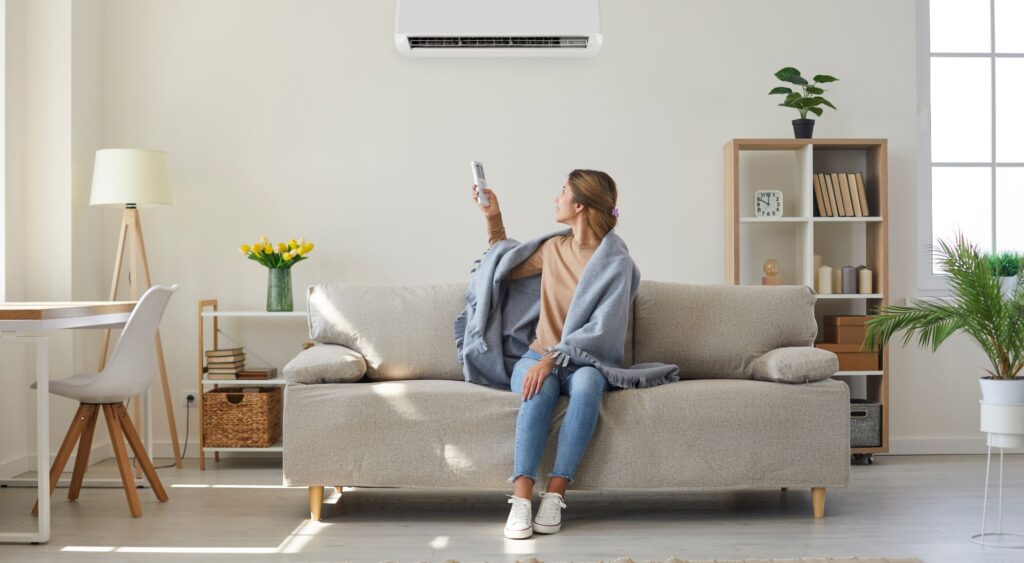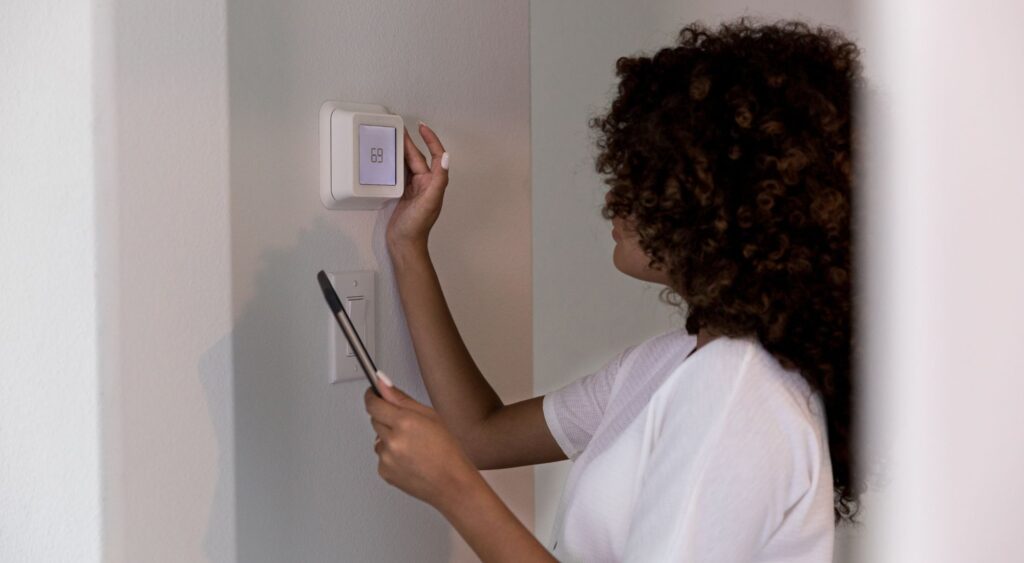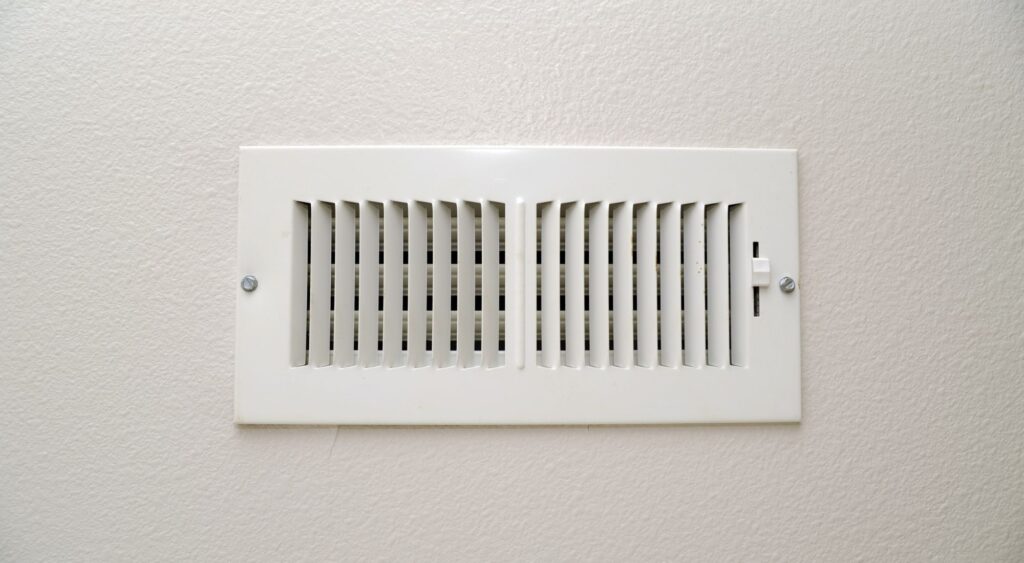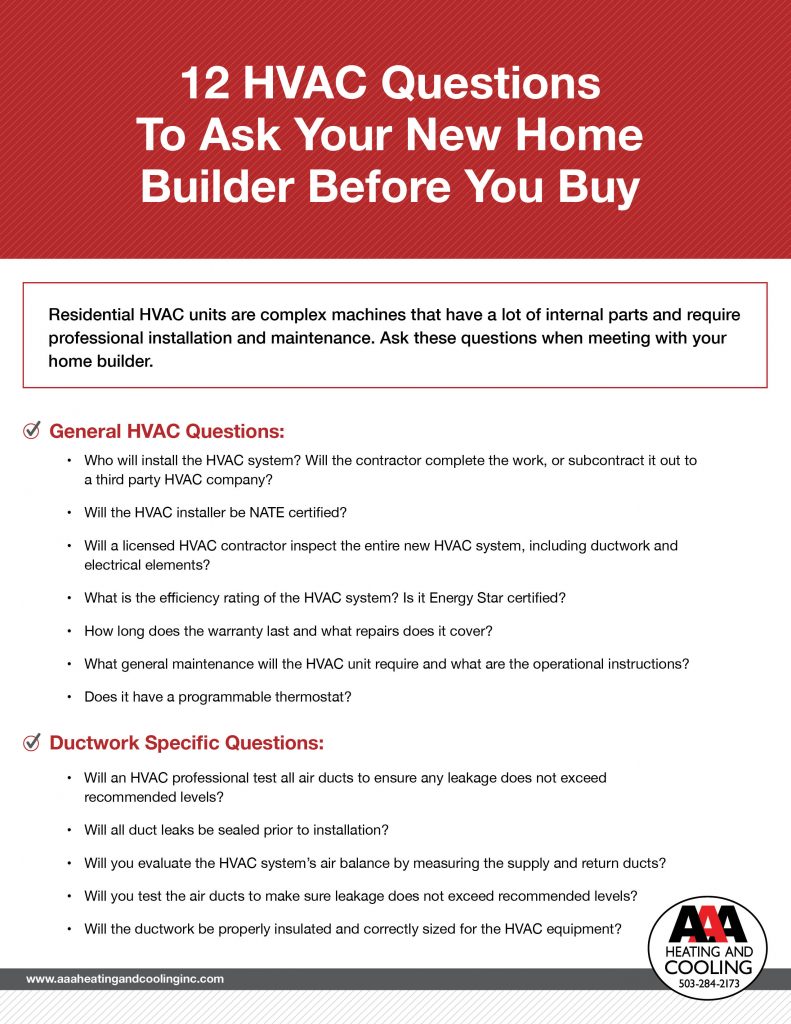Getting To Know Your HVAC Damper: Definition, Benefits, and FAQs
As a homeowner, no one expects you to have an encyclopedia of knowledge about your HVAC system, which is why you probably heard the term “HVAC damper” before but had no clue what it was.
Fortunately, AAA Heating and Cooling would be happy to get you up to speed on all the ins and outs of HVAC dampers.
Along with providing excellent service, our extensive HVAC knowledge can hardly be contained. Here, we will explain what a damper HVAC is, discuss its benefits, and address any other questions you may have.
Table of Contents
- What Is a Damper HVAC?
- How Do Dampers Work?
- Benefits of HVAC Dampers
- Other Common Questions About HVAC Dampers
- AAA Heating and Cooling: Residential HVAC Service, Repair & Installation in Beaverton & Portland
What Is a Damper HVAC?
A damper is a movable small valve or plate that controls the airflow in a building’s HVAC system.
These mechanisms regulate temperature through a zoning system. Zoning systems divide your home heating and cooling into different zones, giving you more options to control your air climate and energy usage.
Dampers monitor airflow, temperature, and humidity levels in your home while lowering or raising the zone’s temperature to your desired setting.
How Do Dampers Work?
Dampers control your home’s heating and cooling by opening and closing to limit one area while increasing it to the other.
HVAC zone dampers come in two types, manual and motorized:
- Manual dampers: These require the homeowner to twist a handle to regulate the airflow into a particular zone.
- Motorized or automatic dampers: These dampers work with your programmable zoning system and function independently. Because it works in tandem with programmable thermostats and other HVAC control systems, it tends to be more convenient and energy-efficient for homeowners.
Benefits of HVAC Dampers
One of the main benefits of dampers is that they improve your HVAC system’s control over airflow, therefore resulting in various other benefits.
Damper systems function differently than residential vent systems. Closing a vent on the floor or the wall will still allow air to travel through your ducts, thus wasting energy. HVAC dampers are located closer to the mouth of the distribution pipe, allowing them to regulate airflow as needed.
By preventing air leaks, dampers may help lower energy bills while also:
- Reducing noise (from the HVAC system)
- Saving energy
- Maximizing home comfort levels
- Lowering energy bills
One 2022 study found that home zoning systems may reduce heating and cooling bills by up to 30 percent. If you are looking to increase energy efficiency and save on utility bills, it might be time to consider a residential zoning system.
If you’re considering damper installation, AAA Heating and Cooling would love to help.
Our expert HVAC contractors in Beaverton and Portland can help you choose the right solution for your home or business. We are a family-owned company that is dedicated to providing quality services, repairs, installations, and outstanding customer service.
With every job we are assigned, we make sure to consider all of the factors to help you make informed decisions.
Other Common Questions About HVAC Dampers
Does Every HVAC System Have a Damper?
Not every HVAC system has dampers, but most do.
However, the number of dampers in a home may depend on its size and the HVAC system. Some builders may not choose to install dampers in homes to cut costs. If you do not have dampers, don’t worry!
A trusted HVAC professional should be able to install them. They will consider the size of your ducts, the type of dampers required, how to zone your rooms properly, and more.
AAA Heating in Cooling has provided reliable HVAC services to Portland and Beaverton communities for over 60 years. With an A+ Better Bureau Business (BBB) rating and commitment to high-quality products and services, no HVAC job is too little or too big for our team.
If you’re in the Beaverton or Portland area and need dampers installed, contact our team to schedule an appointment today.
Is It Okay To Close HVAC Dampers?
Yes! You can adjust your home’s temperature in various rooms by adjusting (opening/closing) your furnace’s dampers.
A manual HVAC damper contains a door that can be manually opened or closed to adjust airflow in a particular zone or room’s ductwork. To locate your dampers:
- Locate the main duct trunks leading from the furnace
- Look 2 to 6 feet off of the main trunk to easily identify your dampers
Once you have located your dampers, you can use the handle on each to either close or open them. The handle should be perpendicular to the duct when closed and pointing down the duct when opened. Each damper is associated with a specific room, so it’s essential to identify and label them.
How Long Do Dampers Last?
The quality of the equipment, how frequently you run your HVAC unit, and whether you follow regular maintenance schedules can all affect the lifespan of your HVAC components. With proper maintenance, dampers can last around 20 years.
AAA Heating and Cooling also offers seasonal HVAC maintenance plans that allow you to ensure your HVAC system is well-maintained without having to worry about it. A well-maintained HVAC system will extend its life and protect it from unexpected (and inconvenient) breakdowns.
How Do You Know If an HVAC Zoning System Works For Your Home?
Some homes have dampers installed in every run, some have only a few, and some have none.
HVAC dampers are good for any homeowner looking to save on their energy bills and increase their system’s efficiency.
When Having an HVAC Zoning System Makes Sense
You may want to consider installing an HVAC damper and zoning system if you have:
- A multi-level home: Since hot air rises, the upstairs rooms in your home may sometimes feel much warmer than the downstairs. An automatic dampening system might help you set different temperatures for the upstairs and downstairs of your home with one thermostat.
- A home with high ceilings: Homes with high ceilings may often experience trapped heat at the top. By using dampers to zone your HVAC system, you can increase your room’s temperature more frequently and circulate the air more strategically.
- A home with large windows: Sunlight can raise your home’s temperature in certain spots. A damper HVAC allows you to make rooms with large windows their own cooling zone to avoid uneven cooling. Then all the cooling power is sent to where it needs to be the most.
AAA Heating and Cooling has the industry knowledge to help efficiently coordinate and conduct your HVAC dampers installation.
We will walk you through the installation process while suggesting other helpful HVAC tips that might save you money, enhance your system’s efficiency, extend your system’s lifespan, and improve your home’s comfort levels.
Do you have other HVAC damper questions that you don’t see mentioned above? Just contact one of our heating and cooling professionals; we would love to talk about HVAC!
AAA Heating and Cooling: Residential HVAC Service, Repair & Installation in Beaverton & Portland
Considering a zoning system? Looking to repair or upgrade your existing model? Curious to learn more about zone dampers?
AAA Heating and Cooling is at your service.
We have proudly served the Beaverton and Portland area since 1961. Over the years, we’ve collected extensive HVAC knowledge and used it to solve various heating and cooling issues. From installing dampers on your existing HVAC system to retrofitting systems in older homes, there is little we can’t do.
If you need HVAC services and would like to join the ranks of our many satisfied clients, request an appointment today.
14 HVAC System Tips for New Homeowners in Portland
 Are you a first-time homeowner in the Portland metro area? If so, HVAC systems might be unfamiliar to you. Want to learn HVAC equipment basics and maintenance tips from top experts? Our local HVAC company shares heating and cooling fundamentals below.
Are you a first-time homeowner in the Portland metro area? If so, HVAC systems might be unfamiliar to you. Want to learn HVAC equipment basics and maintenance tips from top experts? Our local HVAC company shares heating and cooling fundamentals below.
HVAC Tips for Beginners
What is an HVAC system? HVAC stands for “heating, ventilation, and air conditioning.” As the name suggests, HVAC units are responsible for all your residential heating and air conditioning needs. While HVAC systems are complex machines with many intricate parts, there are nine main components you should be familiar with. Keep in mind not all HVAC units are alike, so consult your professional HVAC contractor with any questions.
9 Basic HVAC Components
1) Furnace
Your furnace is designed to heat air and push it through your duct system to properly warm up your home. Furnaces can run off of electricity or natural gas, come in single-stage or two-stage options, and are often installed in your garage, basement or utility closet.
2) Heat Exchanger
The heat exchanger is not technically part of your furnace, although it is often located inside of your furnace. The furnace is responsible for moving hot air into your ducts, but the heat exchanger converts cold air to warm air via the combustion chamber.
3) Evaporator Coil
Also located inside of your home furnace, the evaporator coil helps to cool your indoor air. Refrigerant circulates through the coil, which allows the evaporator coil to absorb heat from the incoming air. The chilled air then blows through the ducts to help cool your residence.
4) Condensing Unit
The condensing unit serves a similar function as the evaporator coil; however, the condensing unit is typically located outside your home and gives off heat.
5) Refrigerant Tubes
Refrigerant tubes connect the evaporator coil to the condensing unit. They are usually made of metal, contain refrigerant, and join the indoor and outdoor units.
6) Thermostat
Thermostats allow you to control the internal temperature of your home. Typically mounted on the walls of a home, they can be located throughout your residence. You can find manual, programmable, and smart options. Programmable thermostats can often help save energy costs.
7) Ductwork
Ductwork allows warm or cool air to be distributed throughout your home via air ducts. Hot or cool air is pulled into your HVAC system, where it is conditioned, then pushed back out to maintain ideal indoor temperatures. Ducts can be located in attics and in the ceiling spaces.
8) Vents
As conditioned air moves through the ducts, it enters rooms in your home through air vents.
9) Heat Pump
A residential heat pump provides both heating and cooling. During colder months, the heat pump transfers cold air from the inside to the outside. In the warmer months, it does the exact opposite.
5 HVAC Tips for Portland Homeowners
1) Know Your HVAC System
As an Oregon homeowner, you need to know what type of HVAC system you have. This will help you troubleshoot potential problems and plan your routine maintenance schedule.
The most common system is known as the central air conditioning system and includes all the components listed above. Some homes, however, could have ductless systems. It’s also a good idea to know if your home uses a gas or electric furnace, or a boiler system.
2) Don’t Close Your Vents
Keeping air vents open allows for proper air distribution throughout your home. Closed vents force your HVAC system to work harder and less efficiently.
3) Inspect and Clean Your Ductwork
As a new homeowner, it’s important to have your ducts inspected and cleaned by a professional. Dirty and clogged ducts can contribute to poor indoor air quality and increase energy costs.
4) Replace Your Air Filter
One of the first maintenance steps you can take in your new home is to replace the air filter. Choose one that fits the best needs for your residence. Plan to replace your air filter every three months.
5) Develop an HVAC Maintenance Schedule
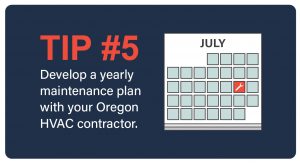 Upon moving into your new home, contact your Oregon HVAC contractor and schedule a maintenance visit. Once all issues have been addressed, develop a yearly maintenance plan with your contractor. Taking care of your HVAC system will keep your unit performing its best and can save you on energy costs.
Upon moving into your new home, contact your Oregon HVAC contractor and schedule a maintenance visit. Once all issues have been addressed, develop a yearly maintenance plan with your contractor. Taking care of your HVAC system will keep your unit performing its best and can save you on energy costs.
Residential HVAC Services for Your Portland Home
If you are new to HVAC systems and need expert advice, AAA Heating and Cooling is here to help. Whether you are looking to schedule a routine visit or have an issue that requires immediate attention, our trained technicians can get the job done. Contact us today and let us assist you with all your HVAC needs.
Can Air Conditioning Remove Humidity from Your Home?
 Excessive humidity levels in your home can make your living conditions uncomfortable. Humidity can also cause damage to walls and flooring, encourage mold and mildew growth, and reduce your overall indoor air quality.
Excessive humidity levels in your home can make your living conditions uncomfortable. Humidity can also cause damage to walls and flooring, encourage mold and mildew growth, and reduce your overall indoor air quality.
If you are living with home humidity, you might be wondering, will your AC unit remove it? Want to know what HVAC services can help you tackle uncomfortable indoor air? Our residential HVAC contractors in Beaverton share AC facts and HVAC humidity control tips.
How Does an Air Conditioner Remove Humidity?
Residential air conditioners cool your home by blowing cold air into your living spaces while removing heat and moisture. The warm air passes over evaporator coils filled with refrigerant, where it is cooled, then reintroduced into your home.
We all know that air conditioners are designed to cool your home, but does your AC remove humidity? The short answer is yes. The cooling process also draws water vapor from the air, which condenses on the coils, then drains away. As water is removed from the air, via the AC unit, humidity is reduced.
Will Your AC Unit Remove Humidity Efficiently?
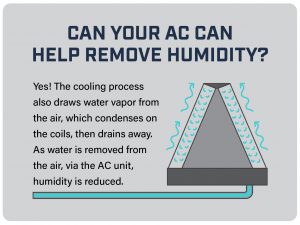 While home AC systems can help alleviate high humidity levels, dehumidifying the air isn’t their primary job. In order to keep your indoor air at comfortable levels, air conditioning units have to work extra hard. Why? Humidity holds heat so if you have excess levels in your home, the AC is working overtime to cool the air and remove the moisture.
While home AC systems can help alleviate high humidity levels, dehumidifying the air isn’t their primary job. In order to keep your indoor air at comfortable levels, air conditioning units have to work extra hard. Why? Humidity holds heat so if you have excess levels in your home, the AC is working overtime to cool the air and remove the moisture.
To make matters potentially worse, if your residence has an abundance of humidity that your AC can’t keep up with, you run the risk of stressing out your compressor, which can lead to failure. To mitigate potential problems, and keep you home free from harmful humidity, it might be time to invest in a whole-home dehumidifier.
Air Conditioning Units vs Whole-Home Dehumidifiers
The main difference between AC units and dehumidifiers is that air conditioners remove humidity by cooling the air and dehumidifiers decrease humidity by drying the air. Which one is the best solution for your Beaverton area home? Our local HVAC contractors weigh the pro and cons of each:
- Energy Use: To properly control humidity levels, you might find yourself running your AC 24/7. This can increase your overall energy bill. Whole-home dehumidifiers can quickly reduce humidity levels and use less energy than central air conditioning units because they help speed up natural evaporation.
- Mold and Mildew: Because dehumidifiers dry out the surrounding air, they are more effective combating fungus and mildew that thrive in damp areas. Since AC units don’t remove moisture, bacteria and mold can grow more easily. If you or someone in your household suffers from asthma or mold allergies, a dehumidifier can help alleviate symptoms.
- Cost: Installing a whole-home dehumidifier for the first time can be a costly investment, but can save you in energy costs and take pressure off your AC unit.
- Temperature Control: Dehumidifiers cannot cool or heat a room. They are strictly designed to manage moisture levels. Dehumidifiers, however, can be installed to work in conjunction with your residential heating and air conditioning system.
Making the Right Decision for Your Home
Are you experiencing uncomfortable humidity levels in your home and aren’t sure what to do? If your home feels overly humid, even when the air conditioning unit at its proper cooling temperature, here are some of your options:
- Try some at home remedies to naturally reduce humidity. For example, check for leaks that could be contributing to humidity, consider placing fans strategically around your home, and change your HVAC filter.
- Have your AC inspected for any problems. An excess of humidity can be the result of a faulty air conditioning unit.
- Consider installing a whole-home dehumidifier to work with your central air conditioning unit.
- If your AC is old or damaged, consider replacing the unit with a system that includes a dehumidifier.
HVAC Humidity Control Contractors in Beaverton
Looking to reduce your home humidity levels? Whether you need your current air conditioning serviced or are in the market for a whole-home dehumidifier upgrade, AAA Heating and Cooling is here to help. We provide service, repair, and installation in Beaverton and Portland. Contact us to schedule your appointment today.
How to Estimate the Cost of Your Commercial HVAC Unit
 Businesses in Beaverton rely on HVAC systems for employee comfort and air quality. If you are breaking ground on new construction, you want to make sure you install the right HVAC unit for your building before opening your doors.
Businesses in Beaverton rely on HVAC systems for employee comfort and air quality. If you are breaking ground on new construction, you want to make sure you install the right HVAC unit for your building before opening your doors.
Looking for a new system for your commercial property? Need advice on how to estimate the cost of a commercial HVAC system? Our team can help.
How Much Does a Commercial HVAC Unit Cost?
Installing a new commercial heating and air conditioning unit is an investment. A commercial HVAC unit is a complex machine that relies on multiple technologies and parts to function properly. Because of this complexity, costs depend on a variety of factors. To help you determine the variables that can affect HVAC pricing, let’s examine system components for existing buildings and new properties.
HVAC Options & Costs for New Commercial Construction
If you are buying a commercial property in Beaverton, or starting construction on a new building, it’s a good idea to evaluate your HVAC options and costs. The cost of a new HVAC unit and installation vary according to the system you are purchasing. Here are a few pricing factors to consider:
- Heat Pumps, Central Air, and Furnaces
Heat pumps tend to be more expensive upfront, but they can save on long-term costs. Heat pumps provide both heating and cooling, are considered a more environmentally friendly option, and are available ductless. Central air offers only cooling options, while furnaces only provide heating. Both typically require ductwork to be installed.
- Temperature Controls
Depending on the size of your business, your HVAC system might need a simple, single thermostat or a more involved setup of multiple devices. Costs vary based on the complexity of your needs.
- Energy Efficiency Ratings
HVAC systems have a variety of ratings designed to let the consumer know the energy efficiency of the unit. SEER and EER energy ratings can affect the price of HVAC units. Those with higher efficiency ratings are more expensive, but have fewer negative impacts on the environment and are more energy efficient. This can save you money down the road.
Pricing Factors for HVAC Replacement in Your Existing Building
Is it time to replace your HVAC system? Here’s what you need to know before you work with your HVAC installer to determine the best unit for your needs. Keep in mind, now might be a good time to do a complete system upgrade.
- Commercial Heating and Air Conditioning Equipment
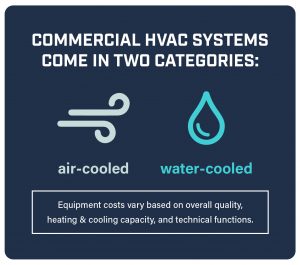 Commercial HVAC systems come in two categories: air-cooled and water-cooled. Water-cooled HVAC units are more cost-effective options upfront. Air-cooled systems tend to cost more initially, but they are known to run more efficiently, which can save you money on energy costs. Equipment costs vary based on overall quality, heating and cooling capacity, and technical functions.
Commercial HVAC systems come in two categories: air-cooled and water-cooled. Water-cooled HVAC units are more cost-effective options upfront. Air-cooled systems tend to cost more initially, but they are known to run more efficiently, which can save you money on energy costs. Equipment costs vary based on overall quality, heating and cooling capacity, and technical functions.
- HVAC Ductwork
If you are replacing your HVAC unit you might have to consider installing new ductwork at the same time. Faulty or worn out ducts can impede the function of your new HVAC system, causing your unit to work harder and cost more to run. Consult with your HVAC contractor and see if your ducts need a thorough cleaning, or complete replacement. Installing new ducts will increase the cost of your HVAC installation, but will help with indoor air quality and energy efficiency.
- Commercial HVAC Controls
HVAC control systems offer a range of controller types, from programmable thermostats to Smart thermostats. As a result, costs can vary widely. As a rule of thumb, the more technologically advanced the controller, the higher the initial investment. While the costs could be more upfront, programmable controllers are highly efficient and can reduce your building energy costs considerably.
Commercial HVAC Services for Your Beaverton Business
Whether you are looking to upgrade an existing HVAC system or need advice on the best solution for your new building, AAA Heating and Cooling is here to help.
HVAC System Testing
Testing is a crucial component to any new HVAC installation. Whether your commercial building is brand new, or you have just upgraded a system in your existing building, an initial inspection and test run should be performed by your Beaverton HVAC contractor. Because HVAC systems are intricate machines, there will likely be some adjustments that need to be made before the entire system is fully functional.
Warranties and Maintenance
Warranty consideration should be a main factor in your HVAC selection. A solid warranty will help prevent costly expenses in the future. Make sure to read over warranty offers closely, paying close attention to the length of terms, what parts are covered, and if an extended warranty is available.
To ensure the longevity of your HVAC investment, you will need to schedule routine maintenance. Work with your HVAC installers to develop a yearly maintenance plan.
Our expert HVAC contractors can recommend a suitable HVAC unit for your needs and budget. We proudly serve the Beaverton and Portland metro areas. Contact us today to learn more or to schedule an appointment.
Is Your Business’s Commercial HVAC Unit Contributing to Allergies?
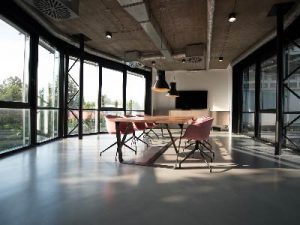 We all look forward to spring and summer. The days are longer, the sun is shining, and flowers are in bloom. For those with allergies, however, pollen can be a nuisance. While we associate allergies mostly with the outdoors, your Portland business’s indoor air quality can affect those with allergies as well.
We all look forward to spring and summer. The days are longer, the sun is shining, and flowers are in bloom. For those with allergies, however, pollen can be a nuisance. While we associate allergies mostly with the outdoors, your Portland business’s indoor air quality can affect those with allergies as well.
What’s worse? Mold, mildew, dust, and other debris could be circulating throughout your commercial property, exacerbating allergies. Did you know that your HVAC system plays a large role in helping to mitigate allergens? Our local HVAC contractors share tips on how to improve your air quality.
Is Your Commercial HVAC System Making Allergies Worse?
Indoor air pollution comes from a variety of sources and can trigger allergic responses. The most common allergens found inside of commercial business in the Portland area include pet dander, mold and mildew, pollen, and dust mites.
With Oregon leading the nation in the top five worst cities for allergy sufferers, it’s crucial to maintain good indoor air quality.
4 Common Causes of Poor Indoor Air Quality in Commercial Spaces
1) Mold and Mildew
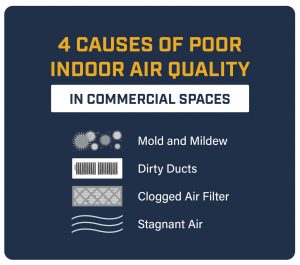 Our rainy seasons make for a perfect mold and mildew breeding ground. Mildew and mold quickly accumulate in damp, moist environments. As the spores travel through the air, they can aggravate allergies and even trigger asthma attacks. An improperly maintained HVAC system could be harboring harmful condensation and humidity. Turning on your commercial heating and air conditioning unit under these conditions could inadvertently expose people in your building to mold and mildew.
Our rainy seasons make for a perfect mold and mildew breeding ground. Mildew and mold quickly accumulate in damp, moist environments. As the spores travel through the air, they can aggravate allergies and even trigger asthma attacks. An improperly maintained HVAC system could be harboring harmful condensation and humidity. Turning on your commercial heating and air conditioning unit under these conditions could inadvertently expose people in your building to mold and mildew.
The Fix:
To assess the health of your HVAC unit, schedule an appointment with your Portland HVAC contractor. They can address any problems and ensure that your system is functioning properly. You can also set up a routine maintenance schedule to keep your unit performing at its best. If you have a serious problem with humidity, consider installing a dehumidifier for your business.
2) Dirty Ducts
Duct systems distribute hot and cool air throughout your commercial property. Over time, and without proper maintenance, air ducts can become clogged with dust, dirt, and other allergy causing debris. As the dirty air ducts circulate air through your building, the contaminants get circled as well.
The Fix:
To improve your overall air quality, have a professional perform a complete cleaning of your duct system. If your ducts are damaged from neglect, or simply past their prime, you might want to think about a replacement.
3) Clogged Air Filter
HVAC air filters are designed to trap dirt, pollen, and other pollutants and prevent them from circulating back into your commercial building. Dirty and clogged air filters can fail to function, causing pesky allergens to redistribute back into the air.
The Fix:
Check and change your air filter frequently. Our Portland HVAC company recommends checking your air filters monthly and replacing them every three months. For a high-efficiency filter, consider upgrading to a filter with a high MERV rating.
4) Stagnant Air
To help with energy efficiency, many commercial buildings are heavily insulated and air tight. While great from an energy standpoint, if indoor air doesn’t have a chance to escape you could be trapping allergens inside.
The Fix:
Even if the temperature inside seems comfortable, it’s ok to run your air conditioning unit for 20 minutes to periodically circulate the air. AC units help remove stale air and draw fresh air inside. Work with a NATE certified HVAC professional to conduct a proper inspection of your HVAC unit and make sure your air conditioner is functioning properly. This is also a good time to check your AC energy efficiency and think about an upgrade if needed.
HVAC Solutions for Commercial Buildings in Oregon
Help keep allergies at bay in your commercial building with professional HVAC services from AAA Heating and Cooling. Our skilled technicians provide professional service, expert installation, and quality repair.
Want to ready your commercial property for the allergy season and beyond? Contact us today!
Are New Homes Available in Beaverton’s Cooper Mountain Area?
 If you are a Beaverton resident you have likely heard about the new Cooper Mountain development expansion. In just a few years new homes will be built in this up-and-coming area of Beaverton. What will this growth look like? What effect will it have on current residents?
If you are a Beaverton resident you have likely heard about the new Cooper Mountain development expansion. In just a few years new homes will be built in this up-and-coming area of Beaverton. What will this growth look like? What effect will it have on current residents?
Whether you are planning to purchase a new Cooper Mountain home or just want to keep abreast of the plans, we’ve got the details.
Your Beaverton HVAC Contractors Share Expansion Details
Beaverton has been growing rapidly in past years. Around 50 years ago Beaverton began its transformation from a quaint Tualatin Valley farming town into a vibrant Oregon city. Now the sixth largest city in the state, we are seeing more and more people move in to take advantage of all the amenities Beaverton has to offer. From our family-friendly atmosphere, to gourmet food scene, to dynamic Farmer’s Market and wealth of wineries, people from all over are wanting to call Beaverton home. With this influx of residents and growing families continuing their roots, leaders are looking to expand the Cooper Mountain area.
What is Considered the Cooper Mountain Area?
The Cooper Mountain are is comprised of three distinct sectors:
- North Cooper Mountain: a 510-acre area, which is inside the urban growth boundary and in unincorporated Washington County
- Cooper Mountain Urban Reserve: the 1,242-acre zone located between the North and South areas
- South Cooper Mountain: a 544 acre area that was annexed by the city of Beaverton in 2012.
The current development plan aims to maintain our distinctive landscape, while finding room for our growing population. The north and south regions will see the most expansion. The urban reserve area will keep the Cooper Mountain Nature Park untouched and preserve the majority of the natural areas. It’s estimated that only 600 acres of the 1,242 urban reserve area are developable. This development across all areas could provide around 3,700 new housing units as early as 2023 or 2024.
What the Cooper Mountain Expansion Means for Prospective Homeowners
With the addition of new homes, there will be opportunities for residents in Beaverton and beyond to find their new dream home. Planning to take the plunge as an owner of one of these upcoming properties? It’s important to think about logistics like heating and cooling, energy efficiency, and air quality before signing on the dotted line. With brand new homes comes the advantage of a brand new residential HVAC system.
There are many different types of HVAC units and levels of performance, so how do you know if you are getting the best heating and cooling for your new residence? When in doubt, consult your Beaverton HVAC installer and ask the important questions:
- Is the HVAC unit the correct size for your home? Too large of a system will heat or cool your house quickly, but could create excessive humidity. If the unit is too small, it will struggle to effectively cool or heat your home.
- What is the Energy Star rating of your HVAC system? Energy efficient units will save you on utility bills over time.
- Has the ductwork been properly installed? Ductwork that has gaps in the seams or loose connections will reduce air quality and energy efficiency.
- Was the HVAC unit installed by a NATE certified technician?
If all signs point to a high-quality HVAC system, plan a routine maintenance schedule with your HVAC contractor. This will keep your system healthy and functioning for years to come.
Residential HVAC Service for Your New Beaverton Home
HVAC systems are intricate machines that require the best technical expertise to keep them at peak performance. At AAA Heating and Cooling, we provide quality repair, expert installation, and professional advice. Want to ensure the health and longevity of your HVAC unit? Let one of our dedicated HVAC professionals in Beaverton assist you. Contact us today!
Click to View or Download Our Checklist
Commercial Construction in Beaverton Booms in 2020
 2020 is an exciting time for commercial development in Beaverton. New hotels, the much anticipated Center for the Arts, and a wealth of new buildings will be breaking ground this year and beyond.
2020 is an exciting time for commercial development in Beaverton. New hotels, the much anticipated Center for the Arts, and a wealth of new buildings will be breaking ground this year and beyond.
Curious to know what new commercial properties will be popping up? What does this mean for potential business owners? Our commercial HVAC contractors give you the lowdown on all aspects of the progress.
Commercial Projects in the Works
From retail establishments, to restaurants, to arts and entertainment, our business sector is going through dynamic changes. Here’s a brief list of current and forthcoming business calling Beaverton home:
- Two new hotels started construction at the beginning of 2019, and there are plans for more accommodations in 2020.
- More than 60 restaurants, including a wine bar and brew pub, have opened their doors nearby our Beaverton Central MAX station.
- The long awaited Center for the Arts broke ground November 13, 2019 and is expected to have its Grand Opening in the fall of 2021.
- Cedar Hills Shopping Center could see a major redevelopment with the addition of 500 apartments and new retail shops.
The ongoing projects are expected to bring in more jobs, increase tourism, and strengthen our already vibrant downtown.
Does Your Commercial Property Need an HVAC System?
Is your new business about to break ground? Have you thought about your unique commercial heating and air conditioning needs?
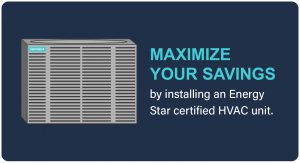 Whether you are still in the planning stages or close to completion, keep these money-saving facts in mind when installing your HVAC system:
Whether you are still in the planning stages or close to completion, keep these money-saving facts in mind when installing your HVAC system:
- HVAC systems with higher SEER, EER, and HSPF ratings will increase your energy efficiency and save you money in utility bills over time. Maximize your savings by installing an Energy Star certified unit.
- New ductwork, that is properly installed and sealed by your HVAC contractor, improves air quality and helps maintain ideal indoor temperatures. With healthy air quality and regulated temperatures, you can avoid potential health complications like allergies and asthma.
- New HVAC systems require less maintenance upfront. Older systems can show signs of deterioration, struggle to work, or fail to function. While new HVAC units don’t require immediate care, don’t forget routine check-ups to help avoid costly repairs in the future.
At AAA Heating and Cooling, we provide expert repair, maintenance, and installation. Let one of our dedicated HVAC professionals assist you with your commercial heating and cooling needs. Contact us today!
Does HVAC Ductwork Go Bad?
 The condition of your ductwork is crucial to the effectiveness of your commercial or residential HVAC system. Problems with your air ducts can hinder the overall function of your HVAC system, causing the unit to work harder than needed. This can result in lower energy efficiency and poor air quality.
The condition of your ductwork is crucial to the effectiveness of your commercial or residential HVAC system. Problems with your air ducts can hinder the overall function of your HVAC system, causing the unit to work harder than needed. This can result in lower energy efficiency and poor air quality.
While ductwork needs maintenance to ensure proper output, can HVAC ductwork go bad? Your local HVAC contractor answers this important question and provides details how ductworks function.
Ductwork Details from Your Portland & Beaverton HVAC Installers
Our Beaverton and Portland HVAC company is often asked if ductwork can go bad. What does this mean? How long does residential and commercial ductwork last? What are steps you can take to ensure a healthy HVAC system? To address these concerns, it’s necessary to learn more about the function of ducts.
Ductwork 101
Ductwork is engineered to distribute airflow from your HVAC system to your entire residential or commercial building. In simple terms, hot or cool air is extracted from your entire building into the HVAC unit where it then gets heated or cooled and recycled into your property via the ducts. Your HVAC goes through this cycle continuously to ensure ideal internal temperatures.
Think of ducts as air conduits that allow air a pathway to and from your HVAC unit. With that in mind, the straighter and shorter the track of the duct is, the better the air flow. In addition, any twists, blockages, and debris in your ductwork will impede optimum air flow. Therefore, it is important to make sure your ducts are properly cleaned and professionally installed for maximum performance.
So, Can Your Home or Business’s Ductwork Go Bad?
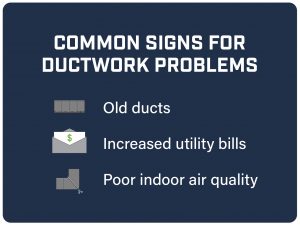 While you can think of ductwork as pathways that air travels through, that doesn’t necessarily mean they are passive elements in the air conditioning and heating cycle. As air moves through the ducts, they can shift, expand, and contract. Winter heating causes the ducts to expand and summer cooling makes them contract.
While you can think of ductwork as pathways that air travels through, that doesn’t necessarily mean they are passive elements in the air conditioning and heating cycle. As air moves through the ducts, they can shift, expand, and contract. Winter heating causes the ducts to expand and summer cooling makes them contract.
These movements put internal stress on the metal of the ductwork. While they don’t cause the system to go bad, per se, they will cause duct deterioration over time. What effect does this have on your ductwork? Seams can pull apart and ductwork can become detached, which impedes proper heating and cooling. This also opens the door to debris and water condensation, which can lead to rust.
Common Signs for Ductwork Problems
Now that you know the importance of having healthy ductwork, how can you tell if your ducts are experiencing problems?
- Old ducts: If your residential or commercial ductwork is over 15 years old, and you haven’t performed routine maintenance, you might have deterioration in your ducts.
- Increased utility bills: If your utility bills are higher than expected, it could be a result of leaky or obstructed ducts.
- Poor indoor air quality: Gaps in your ducts can let irritants like pollen and dust into your residential or commercial property. This can not only aggravate allergies or asthma, but it can cause damage to your HVAC unit.
If you notice any of the above symptoms, let your HVAC contractor know right away to prevent any further damage.
How Long Does Ductwork Last Before It Needs Replacing?
Even well-maintained ducts might eventually need to be replaced. How much life can you get out of your HVAC system before installing a new one? The good news is most ductwork lasts approximately 10 to 15 years.
If your ducts are older than 15 years, you might consider a complete replacement, or you might be able to just replace some of the components. An HVAC professional can perform an examination and determine the best solution.
Your HVAC Ductwork Specialists in Beaverton and Portland
AAA Heating and Cooling serves the Beaverton and Portland areas. We perform routine maintenance to keep your ducts in top shape. We also provide HVAC repair and complete installation. Contact us today for all your ductwork and HVAC needs.
